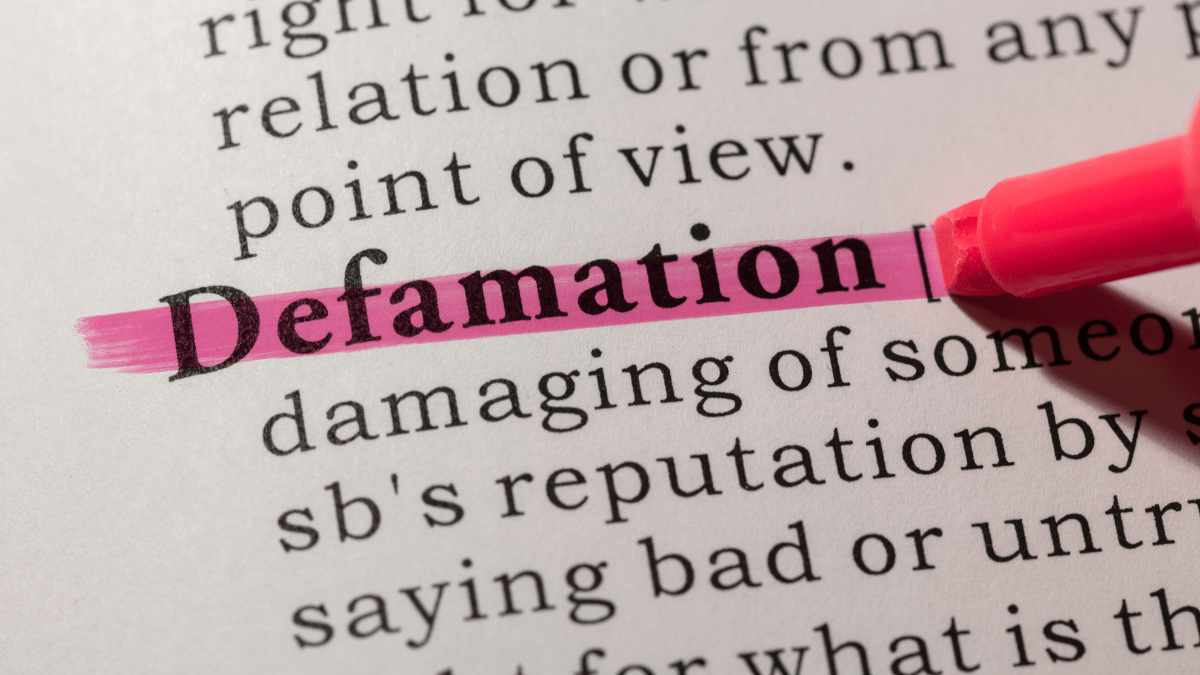Defamation is injury to the reputation of a person. If a person injures the reputation of another he does so at his own risk, as in the case of an interference with the property. A man’s reputation is his property, and if possible, more valuable, than other property. Any intentional false communication, either written or spoken, that harms a person’s reputation; decreases the respect, regard, or confidence in which a person is held; or induces disparaging, hostile, or disagreeable opinions or feelings against a person, is called defamation.
Table of Contents
Criminal and Civil Defamation
Criminal Defamation: Criminal defamation is the act of offending or defaming a person by committing a crime or offence. For criminal defamations, you could always get the liable person or party prosecuted. It is studied in IPC as a criminal act.
Civil Defamation: Civil defamation involves no criminal offence, but on account of this kind of defamation, you could sue the person to get a legal compensation for your defamation. It is studied under law of torts i.e. as a civil wrong.
Difference Between Civil Defamation And Criminal Defamation
| Sr. No. | Defamation as a Tort | Defamation as a crime |
| 1. | It is a civil wrong. | It is a criminal offence, which is bailable, non-cognizable and compoundable. |
| 2. | It is based on tort law- an area of law which has no statutes to define wrongs and relies completely on case laws to define wrongs. | It has been defined as an offence under Section 499 and the punishment for the same is given in Section 500 of the Indian Penal Code, 1860. |
| 3. | It provides redressal to the plaintiff by awarding damages in the form of monetary compensation from the accused. | It seeks to punish the offender and send a message to the society not to commit such an offence. |
| 4. | Damages are awarded on the basis of probabilities. | The offence of defamation has to be established beyond a reasonable doubt. |
| 5. | It is generally a slow process to seek relief in India. | The plaintiff can move to criminal court and ask the offender to take cognizance of his complaint. |
| 6. | A person found guilty can be penalized only by making him pay damages. | A person found guilty can be punished with imprisonment up to two years or fine or with both. |
Libel and Slander
Mainly because of historical reasons, English law divides actions for defamation into Libel and Slander.
- Libel is a representation made in a permanent form like writing, movie, picture etc. For e.g., X printed some advertisement saying Y is bankrupt but Y was not thus it was representation in a specific form.
- Slander, on the other hand is the publication of a defamatory statement in transient form like spoken words or gestures. For e.g., A questions the chastity of B in an interview, A is slanderous.
Difference Between Libel and Slander
Defenses to the Tort of Defamation
There are three defences of defamation namely –
Justification or Truth
Under criminal law, merely proving that the statement was true is no defence but in civil law merely showing truth is a good defence. In Alexander v. N.E. Rly, the plaintiff had been convicted of riding a train from Leeds without having purchased a valid ticket. The penalty was a fine and a period of imprisonment of fourteen days if he defaulted on the fine. However, following the conviction, the defendant published a notice that the plaintiff was convicted and issued a fine or three weeks imprisonment if in default. The plaintiff alleged that the defendant had committed libel by describing the penalty issued to him inaccurately.
The defendants argued that the conviction was described with substantial and sufficient accuracy and the words so far as they differed in their literal meaning from the words of the conviction were not libellous. Judgment was given in favour of the defendants. The gist of the libel was that the plaintiff was sentenced to pay a sum of money and, in default of payment, to be imprisoned. Blackburn J noted that the substance of the libel was true but the question was whether what was stated inaccurately was the gist of the libel.
Fair Comment
- The comment must be an expression of opinion rather than assertion of fact.
- The comment must be fair i.e. without malice.
- The matter commented upon must be of public interest.
Privilege
There are certain occasions when the law recognizes the right to freedom of speech outweighs the plaintiff’s right to reputation, the law treats those occasions as ‘Privileged’. These are further of two types –
- Absolute Privilege: No action lies for the defamatory statement even though the statement is false or made maliciously. It applies to : Parliamentary Privilege, Judicial proceeding and State communication.
- Qualified Privilege: It is necessary that the statement must have been without malice. The defendant has to prove that statement was made on a privileged occasion fairly.
| Absolute Privilege | Qualified Privilege |
| The defendant can avail this defence even when he has made the false and defamatory statement deliberately and maliciously. | The defendant can avail this defence when he made the false and defamatory statement deliberately, but without malice. |
| It can be used as a defence in the Parliamentary, judicial, naval, military or State proceedings. | It can be used as a defence in the communications made in the course of legal, social or moral duty, for self- protection, for protection of common interest, for the public good. |
Read Also: List of High Courts in India 2023




